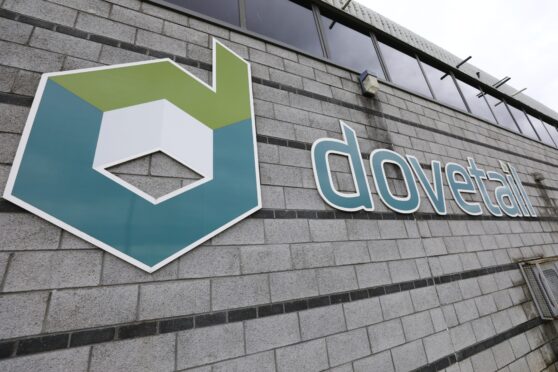Former Dundee United chairman Stephen Thompson has been officially made bankrupt, with hundreds of thousands of pounds of debts.
The businessman was granted sequestration – the Scottish term for the legal process of declaring someone bankrupt – on December 18.
A document available at Accountant in Bankruptcy, Scotland’s insolvency service, details his level of debt at £881,833.
‘I’ve hit rock bottom’
Mr Thompson announced he had filed for bankruptcy when he was a guest on BBC’s Off The Ball radio show at the start of November.
When asked by host Tam Cowan what he has been up to, he said: “Well, I’ve kind of hit rock bottom to be honest. I actually signed a petition for bankruptcy yesterday.
“It’s not a great place to be in life but it’s a fresh start for me.”
James Stephen from Glasgow-based financial services firm BDO will carry out the role of trustee, controlling Mr Thompson’s finances.
It is the trustee’s job to control the debtor’s assets and pay as much money back to creditors as possible.
What debts led to Stephen Thompson bankruptcy?
Mr Thompson sold his shareholding in Dundee United in 2018.
He launched his most recent business venture, Eddy’s Food Station, in May 2022.
The convenience shop chain grew to six shops including locations in Ceres, Leuchars and Buckhaven in Fife.
But this company went into administration in April, with debts of more than £4 million.
Mr Thompson has previously stated he had invested his “total pension pot” into his latest business venture.
He said the energy bills for a store had risen from £2,000 a month to £10,000. Finding staff and food inflation were highlighted as other problems.
But a report by administrators FRP said the company had “paid premiums” to secure leases as it built up its portfolio of stores and had also incurred “substantial” refurbishment costs.
The administrators said the financial problems escalated in March this year when main supplier, Costcutter, stopped supplying the business as a result of unpaid debts.
Bankruptcies usually come to an end after six months or a year with most of the debt wiped out.
People may have to sell their assets, including their home.
There are also limits on borrowing money and the impact on a credit rating lasts for six years.
Mr Thompson was asked to comment.












Conversation